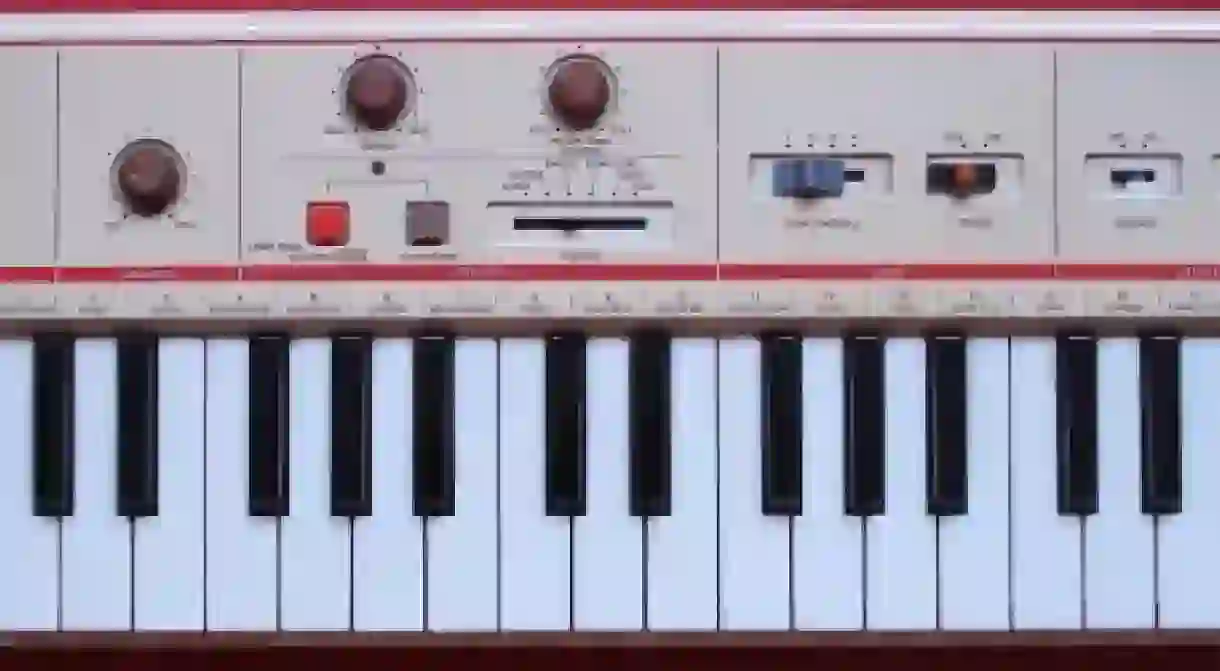Do We Owe Reggae's Digital Revolution To David Bowie?

While mourning the untimely death of David Bowie, music lovers whimsically looked back on the artist as the innovator who transcended the boundaries of popular music, remembering the musician who was always six steps ahead of his time, and how he pioneered the revolutions of punk, post-punk, Goth, and men in heels. However, a lesser-known revolution to which the music world owes the Thin White Duke occurred in reggae, through the ‘Sleng Teng’ riddim.
The birth of this riddim, a word referring to the musical backing track to Jamaican popular songs, began with the seemingly unremarkable Casio MT-40 keyboard. The keyboard features a number of presets, which are pre-recorded rhythm tracks that can be activated with the press of a button. The presets take on the sounds of a particular musical genre, and it is the keyboard’s three-second long ‘rock’ preset that has since become immortalized in the reggae world:
Reggae keyboard player Noel Davey purchased the Casio MT-40 after realizing that the contraption he intended to buy, a technically superior Yamaha synthesizer, was out of his price range. When friend and fellow reggae musician Wayne Smith later visited Davey, he discovered this ‘rock’ preset on his new keyboard. Together, they slowed it down and looped it to create the first ever riddim to be manipulated on a computer and digitally produced. Smith then used the riddim as the musical foundation for his single ‘Under Mi Sleng Teng,’ produced by Lloyd ‘King Jammy’ James in 1985. It is from this song that the riddim earned its name.
‘Under Mi Sleng Teng’ proved groundbreaking in the reggae community because of its musical bassline. It was the first time a computerized digital riddim had been used in this style of music, opening up a wealth of new possibilities for musicians to come. The ‘Sleng Teng’ riddim soon became one of the most recognizable sounds of the reggae genre, marking the end of the reign of roots reggae music and ushering in the dawn of digital-based reggae: dancehall.
So how does David Bowie come into this? An interview with Hiroko Okuda last year revealed Bowie’s pivotal, albeit accidental, role. Okuda is the head of product development and musical engineering at Casio, and creating the presets for the MT-40 keyboard was the first project she worked on. As a longtime listener of reggae herself, she wondered whether this could have fed into her subconscious while creating the keyboard’s presets, musing, ‘I guess there was something reggae-like about the [sleng teng] rhythm. I recall being touched by the fact that what I had been listening to every day seemed to show in the product.’
However, she admitted that a conscious inspiration upon which she based the ‘rock’ preset was a pre-existing song: ‘a British rock record from the 70s.’ She would not reveal its name, offering only the tantalizing fact that ‘you would immediately notice it once you hear the song.’ Although she refused to divulge which particular song she drew inspiration from, the ‘Sleng Teng’ riddim draws quite obvious parallels with the opening riff in Bowie’s 1971 hit ‘Hang On To Yourself’:
It may not have been intentional, but Bowie, the auteur of all auteurs, managed to revolutionize yet another musical genre. The ‘Sleng Teng’ riddim proliferated throughout the reggae canon and features in countless reggae tunes. Its innovation was such that it inspired non-reggae musicians to try their hand at making reggae music; you can hear the riddim in ‘Reggae Joint‘ from hip-hop group 2 Live Crew, as well as Snoop Dogg’s ‘Fruit Juice,’ created in collaboration with Mr. Vegas during Snoop’s brief reincarnation as Snoop Lion.
All this came from a few seconds from the beginning of just one of David Bowie’s songs. The debt that music owes to him continues to grow.













